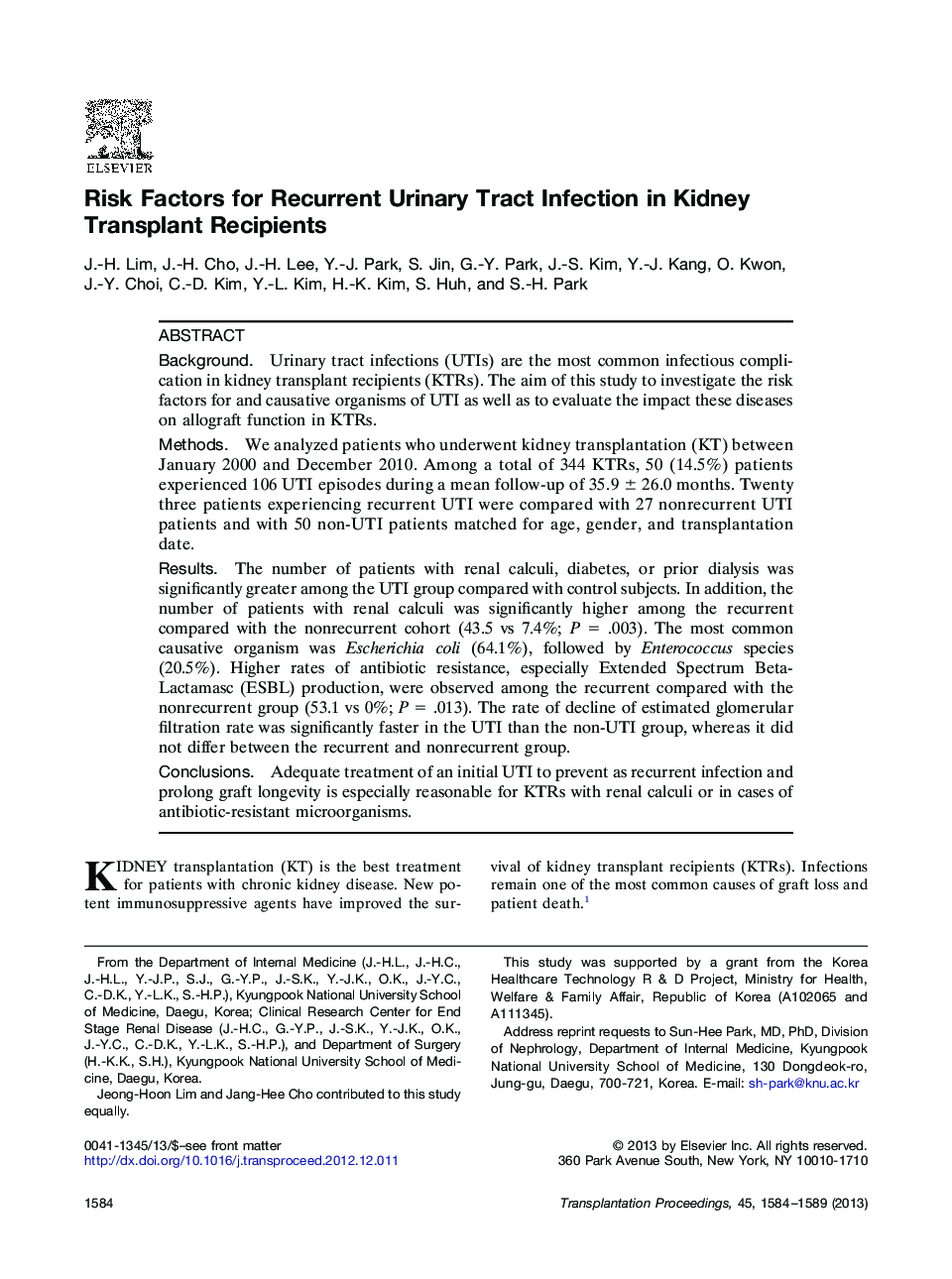| Article ID | Journal | Published Year | Pages | File Type |
|---|---|---|---|---|
| 4257325 | Transplantation Proceedings | 2013 | 6 Pages |
BackgroundUrinary tract infections (UTIs) are the most common infectious complication in kidney transplant recipients (KTRs). The aim of this study to investigate the risk factors for and causative organisms of UTI as well as to evaluate the impact these diseases on allograft function in KTRs.MethodsWe analyzed patients who underwent kidney transplantation (KT) between January 2000 and December 2010. Among a total of 344 KTRs, 50 (14.5%) patients experienced 106 UTI episodes during a mean follow-up of 35.9 ± 26.0 months. Twenty three patients experiencing recurrent UTI were compared with 27 nonrecurrent UTI patients and with 50 non-UTI patients matched for age, gender, and transplantation date.ResultsThe number of patients with renal calculi, diabetes, or prior dialysis was significantly greater among the UTI group compared with control subjects. In addition, the number of patients with renal calculi was significantly higher among the recurrent compared with the nonrecurrent cohort (43.5 vs 7.4%; P = .003). The most common causative organism was Escherichia coli (64.1%), followed by Enterococcus species (20.5%). Higher rates of antibiotic resistance, especially Extended Spectrum Beta-Lactamasc (ESBL) production, were observed among the recurrent compared with the nonrecurrent group (53.1 vs 0%; P = .013). The rate of decline of estimated glomerular filtration rate was significantly faster in the UTI than the non-UTI group, whereas it did not differ between the recurrent and nonrecurrent group.ConclusionsAdequate treatment of an initial UTI to prevent as recurrent infection and prolong graft longevity is especially reasonable for KTRs with renal calculi or in cases of antibiotic-resistant microorganisms.
